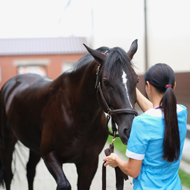Concerns raised about ‘bully’ and ‘dwelf’ cats
Dwelf cats get their short legs from the Munchkin cat lineage.
A coalition of animal welfare and veterinary groups has spoken out against the breeding and promotion of ‘bully’ and ‘dwelf’ cats.
The Cat Group, whose members include the British Small Animal Veterinary Association, Battersea, Cats Protection, the PDSA, International Cat Care, and the RSPCA, has put out a position statement expressing its concern.
‘Dwelf’ cats are hairless cats with curled ears and short legs. They are descended from the Sphynx, American curl and Munchkin cats.
‘Bully’ cats are also hairless with short legs and have excess skin folds. Like XL bully dogs, they are bred to look intimidating.
The groups says that the extreme physical characteristics of the cats have a negative impact on their welfare and quality of life. The short, bowed legs and abnormal joints can cause pain and restrict mobility. The Cat Group has called breeding for extreme characteristics ‘unethical’.
In its statement, the group says: ‘The Cat Group strongly urges breeders to cease breeding “bully” or “dwelf” cats. These cats should not be promoted in any way, for example through social media, or by their presence at cat shows.
‘We ask the public not to buy these cats under any circumstances; doing so is irresponsible as it promotes popularity and leads to more cats with these issues being born to suffer.’
Image © Shutterstock



 The BEVA has opened two new roles on its Nurse Committee.
The BEVA has opened two new roles on its Nurse Committee.